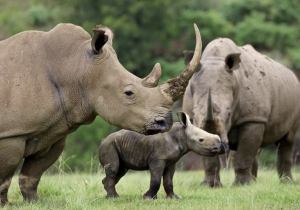By Rodney Genricks.
The diagram was developed for the express purpose of making people aware of who the beneficiaries were in a sustainable way and what is destroying our rhino and wildlife in a unsustainable manner.
View as PDF:
By Rodney Genricks.
The diagram was developed for the express purpose of making people aware of who the beneficiaries were in a sustainable way and what is destroying our rhino and wildlife in a unsustainable manner.
View as PDF:

By Tanya Jacobsen. Originally published on RhinoAlive.com. Rhinos throughout South Africa are being brutally killed for their horns. In this article, I would like to
Originally published on Daily Maverick. China has declared it will permit limited trade in rhino and tiger products from farmed animals, for use in research
Originally published in Business Day. The contribution of the Convention for International Trade in Endangered Species (CITES) to the conservation of African rhino over the
Conservation Influencers is a searchable directory of the animal activist, environmental and ecological lobby. It examines the history, mission, methodology and reputation of NGOs to assess their impact on the global conservation cause.

From 1990 until 2015, Franz Weber Foundation (FFW) managed the Fazao-Malfakassa National Park in Togo, which was, according to an in-depth investigation by Duke University, ‘established by forcing the local communities off their land and without taking into consideration their point of view’. That same study cited convincing evidence from reports published in 1990, confirming that competition for land use was already ‘creating conflict between the local communities and park managers’. In 2015 Togo refused to renew FFW’s contract because, the report says, ‘local communities were still excluded from the management of the natural resources of their land’ and FFW had ‘failed to fulfil its contract’. Franz Weber Foundation plays a major role within CITES because it funds and manages from Switzerland the African Elephant Coalition (AEC), which represents 32 African range states, some of which have barely any elephants and others none at all. Contrary to the wishes of the range states in Southern Africa, which manage most of the world’s wild elephant populations, the AEC at CITES’ CoPs repeatedly tables proposals to put all of the world’s elephants in appendix I. And the AEC uses its voting power to keep in place prohibitions on ivory sales and all other trade in elephant-related derivatives, including skins and hair, which Southern African nations wish to legalise.
IWMC is a not-for-profit organization incorporated in Canada with its Head Office 3, Passage de Montriond, Lausanne 1006, Switzerland. For more information, contact IWMC here. Twitter @iwmcwct
All rights reserved © 2025. See Terms and conditions for usage and cookies policies.
The opinions, beliefs and viewpoints expressed by the various authors and forum participants on this web site do not necessarily reflect the opinions, beliefs and viewpoints of the IWMC World Conservation Trust or official policies of the IWMC.